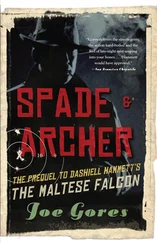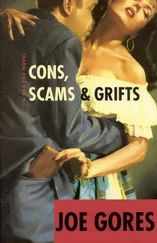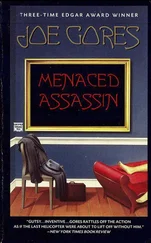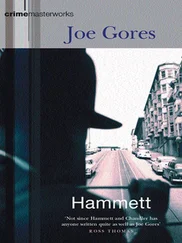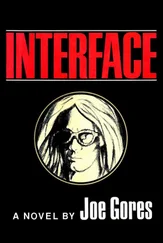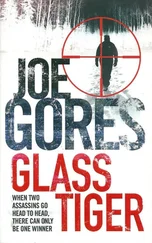“We’re the P.U.C, not the A.M.A. We’re bare-knuckle boys and I don’t like docs, Doc. No old-boys’ network for us, covering up your little peccadillos ’cause you’re one of the club.” He leaned forward and tapped the list of addresses with his finger. “ ‘Sick child’... ‘aged parent’... ‘retarded son’... ‘mother dying of cancer’... This’s phone fraud, Doc, and we can prove it. We can jerk your ticket for that.”
Swigart had turned white. He sat down abruptly in the chair usually reserved for patients.
“Fraud?” he said weakly. “Look, if I explain, can—”
O’B had his hands up, palm-out. “No promises.”
Swigart stood up and began to pace the confined area. O’B hiked himself up on the examining table to get out of the way and let Swigart’s guilts do the talking.
“I... just feel so stupid, that’s all.” He looked at O’B. “Most doctors play golf Wednesday afternoons. I fly planes. Down the Peninsula, Palo Alto Airport.”
This wasn’t going in any direction O’B had expected, so he asked, to keep it going, “Own your own plane?”
“Yes. A Mooney 201. Got a great deal on it, fifty-five thousand used. But I’ve been wanting to get an old biplane. Prewar — from the thirties.”
“I imagine you can afford it.”
In knee-jerk defensiveness, Swigart exclaimed, “Everybody always thinks doctors make a lot of money, but the taxes and malpractice insurance and overhead...”
He’d flown his plane up to a small private airfield in Sonoma County to practice crosswind takeoffs and landings and there had seen an old Belgian Stampe, lovingly restored. He’d admired it aloud to the man and woman up on the reinforced wing panel just about to open the cockpit. They’d climbed back down, delighted at his praise.
“We restored it ourselves,” the man said in Spanish-accented English. He explained that they were from the Argentine, in cattle. “Over a thousand hours to refabric and paint it...”
But now the health of Señor Gonzales’s father was failing and they were going back to take over the estancia ; alas, they were going to have to sell the plane. They’d rolled it out of the hangar, in fact, to show a possible buyer they expected in...
Swigart didn’t want to profit from their misfortune, but if there was another possible buyer already interested, ah, what were they asking? They looked at each other, gave simultaneous Latin shrugs, simultaneous rueful Latin laughs. Since he had admired it so, and since they were so pressed for time, $20,000.
“How does that stack up with the going price for that kind of plane in that condition?” asked O’B.
“A steal. A steal . Should have been thirty, at least.”
Old P. T. Barnum hadn’t had it quite right with his “sucker born every minute” remark. Should have said every second .
“So you wrote them a down-payment check right there—”
“Of course. Five thousand dollars.”
They’d given him a receipt, but the next week when he went back up to Sonoma to pay the balance, a stranger had the plane rolled out of the hangar and was about to fly it away. Swigart had been outraged, only to learn that this man owned it! Even worse, the cockpit had been broken into and irreplaceable original equipment had been wrenched right out of the control panel.
O’B couldn’t help laughing. “The Brooklyn Bridge.”
“I beg your pardon?”
“The Gyppos sold you the Brooklyn Bridge.” He got down off the examining table, still chuckling. “Why in hell didn’t you just report ’em to the cops? Bunco would love to...”
Swigart sat down all-at-once in the patients’ chair again. He grimaced, squeezed his eyes shut as if he could barely face what he had to say. He finally opened them and looked at O’B.
“I... didn’t want my wife to know that I’d been such a fool. Not her... nor my associates... nor the fellows at the club... Besides, those people had just... vanished. I didn’t even know they were Gypsies until...”
“Until they showed up again?” supplied O’B. “Because you didn’t go to the police?”
That had shown them he was vulnerable. So they wanted a “To Whom It May Concern” statement... if he wouldn’t do it, they’d have to tell his wife and friends what a fool he’d been... But then they’d wanted another statement, and another, and another... And now here was the P.U.C. after him anyway, and...
“Did you stop payment on the check?”
“I tried, but it was much too late, of course.”
“Where was it cashed?”
The doctor shrugged his shoulders, stuck his hands out in a search-me gesture. “I can’t remember, if I ever knew. I could find out, of course, but I don’t see what good that—”
“Find out.”
“And the rest of it...”
“All I want is information,” said O’B. “Anything you can tell me. Anything you can remember...”
A thin gruel, but suggestive. The airport up in Sonoma... the guy who actually owned the plane... where they had cashed Swigart’s check... Detailed descriptions, of course... All of it, bits of tile in the mosaic...
But it was Dan Kearny, as you might expect, who actually drew first blood. He’d been let back into their nuptial bed from the spare-room couch, but with Jeannie still prickly as a hedgehog he’d fully expected to stay home all day on Saturday. Spend a little quality time with the wife, mow the lawn, maybe get a start at repairing the front fence whacked by Wednesday’s windstorm. He’d even resolutely refused to bring any of the Gypsy files home with him for work over the weekend.
But by early afternoon, as he dumped the last bale of grass clippings onto the backyard mulch heap, he found himself still bugged by the name the Gyppo had used at all the branches of the bank. Angelo Grimaldi. Usually they went for the short, Anglo-Saxon pseudonyms, so why such an atypical name to open those accounts? All at the same bank? Maybe he’d just drive in to the office through the sparse Saturday traffic to check those files again. They needed to get some kind of handhold on the smooth surface of the con.
So he went into the house and called Giselle at her apartment in Oakland. Got her. And spoke almost accusingly.
“I thought you might be at the office.”
“Nope. Washing dishes, and clothes, and my hair — I like to do that when I can’t tell anymore if I’m a blonde or not.”
“I thought you were going to talk with the bunco cop at SFPD who specializes in Gypsies.”
“He’s off until Monday.”
“I’m going to run into the office and go over that folder on Grimaldi—”
“ I’m off until Monday.”
“I’ll pick you up in half an hour.”
He hung up before she could object. He knew she needed time for herself, to live some kind of normal life, meet the right guy, get married, have kids. At 32, her — what did they say — her clock was running? But not right now. Right now they had these Gypsies to contend with.
Until last year, when she’d learned how to drive and had gotten her license, Giselle had ridden in to work with him five mornings a week. He didn’t realize it, but those forty-five daily minutes in the car had played a big part in DKa’s success. Cut off from phones and interruptions, they’d reviewed operations, planned client strategies, discussed field men’s productivity. They’d argued about computerized report-writing, insurance, health and pension and profit-sharing plans, automated legal and skip letters. They’d fought about hiring ex-cons as field men and about dying investigations and about dead skips.
During those drives, over the years, DKA had become DKA.
Читать дальше

